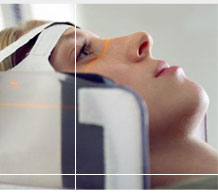 More than 3.2 million people live with the effects of traumatic brain injury.[1] Many of these individuals cannot return to work because of functional and emotional problems tied to their injuries. Research has shown that patients who find gainful employment after sustaining a traumatic brain injury have a greater sense of well-being than their unemployed counterparts. For this reason, it is important that patients have the necessary help to find work, despite their disabilities.
More than 3.2 million people live with the effects of traumatic brain injury.[1] Many of these individuals cannot return to work because of functional and emotional problems tied to their injuries. Research has shown that patients who find gainful employment after sustaining a traumatic brain injury have a greater sense of well-being than their unemployed counterparts. For this reason, it is important that patients have the necessary help to find work, despite their disabilities.
Poor Public Education Leaves Services Underutilized
Many who suffer from traumatic brain injury disabilities do not know about State and Federal Vocational Rehabilitation (VR) services that can help them find work. Better public education could help patients find agencies with the resources to help them find work.
Every U.S. state has a VR department with the goal of helping the disabled find work and live as independently as possible. These departments must meet certain minimum standards to receive federal funding. Veterans can find work placement services from Federal VR agencies.
Coming to Terms with the Injury
To help a patient return to work, counselors must first find the source of the obstacle. The reasons for staying out of work can be different for each patient. No two personalities, injuries or circumstances are exactly alike. While cognitive therapy can often help the injured understand the limits of their post-injury abilities, many patients are not emotionally ready to accept those limitations.
To find acceptance, a brain-injured patient must learn to see the person he was before the accident and accept person he has become. The patient must learn to reconcile the two states of being. Sometimes, the brain injury itself makes it impossible for the patient to understand the difference between his pre-injury and post-injury capabilities.
Helping the Injured Find Work Successfully
When patients feel ready to work, agencies can help by creating a supportive environment at work, supplying assistive technology with training, providing cognitive skills training and involving VR services early in the patient’s rehabilitation program. These services boost the effectiveness of core services like job placement services, on-the-job training, career guidance, emotional counseling and continuing collaboration.
Successful VR Programs Offer More Services
Studies show that the most successful VR programs are well funded. They quickly find jobs for the injured and support the disabled with a wide range of services. These agencies provide training of many kinds, not just on-the-job skills. They help the injured find jobs, prepare them for work through training, offer counseling services and provide rehabilitative care. The least successful programs only provide counseling and vocational assessment services.
Contact Us
If you or someone you love lives with a disability because of traumatic brain injury, contact our office. Our experienced attorneys will provide a free consultation and help you understand your rights. You may be eligible for compensation for your injuries. We will make sure you are aware of all the benefits that may be available to you including lost wages, medical expenses and the cost of rehabilitation.
[1] http://www2.ed.gov/rschstat/research/pubs/vrbriefs/tbi/


